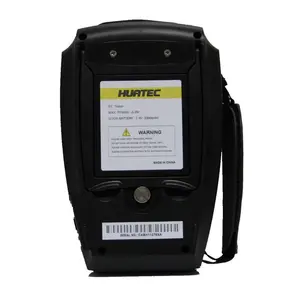Eddy Current Transformers: A Comprehensive Overview
Eddy current transformers (ECT) are pivotal devices in the field of electrical engineering, functioning primarily as sensors for measuring electrical parameters. They offer insights into currents and voltages in various circuits, ensuring that operations run smoothly and efficiently. This product is renowned for its reliability and accuracy in providing real-time data, making it a preferred choice across numerous industries. Understanding the various aspects of eddy current transformers can significantly enhance their application and effectiveness in industrial settings.
Types of Eddy Current Transformers
Eddy current transformers come in various types designed to cater to specific applications and requirements. The following categories stand out in terms of functionality and application:
- Inductive Eddy Current Transformers: These employ electromagnetic induction principles to measure current.
- Capacitive Eddy Current Transformers: Utilizing capacitive principles, these transformers operate effectively for voltage measurements.
- Optical Eddy Current Transformers: These are innovative and utilize optical technology for enhanced accuracy in measurements.
- Digital Eddy Current Transformers: Equipped with advanced digital circuitry, these transformers offer precise readings and seamless integration with modern control systems.
Function and Features of Eddy Current Transformers
The functionality of eddy current transformers is vast, providing numerous features that enhance their performance in electrical applications:
- Highly Accurate Measurements: ECTs are capable of measuring electrical parameters with exceptional precision, crucial for data-driven decision-making.
- Wide Frequency Range: They can operate effectively across a broad spectrum of frequencies, accommodating various electrical systems.
- Non-Invasive Sensing: ECTs measure currents without direct electrical connection, which minimizes operational risks and increases safety.
- Robust Design: Built to endure harsh environments, these transformers feature protective casings to withstand mechanical stress and temperature variations.
- Low Signal Distortion: They maintain signal integrity, ensuring that the data collected reflects actual conditions without introducing errors.
Applications of Eddy Current Transformers
Eddy current transformers find their utilities across a variety of sectors, showcasing their versatility and effectiveness:
- Industrial Automation: Used to monitor equipment performance and optimize operations through precise measurements.
- Renewable Energy Systems: Vital for measuring outputs in solar and wind energy production, ensuring efficiency and reliability.
- Power Generation: Employed in power plants to continuously monitor and regulate electrical outputs.
- Telecommunications: Useful in maintaining the efficiency of data transmission systems by monitoring electric currents.
- Transportation: Integral in railways and electric vehicles for ensuring the reliability of electrical components.
Advantages of Eddy Current Transformers
The advantages offered by eddy current transformers make them an ideal choice for numerous applications:
- Extended Lifespan: With minimal maintenance required, ECTs typically have longer operational lifespans compared to conventional transformers.
- Cost-Effectiveness: The accurate readings often reduce unnecessary expenditures in operational costs and efficiency improvements.
- Enhanced Safety: Non-invasive nature enhances safety for both personnel and equipment, reducing risks in high-voltage environments.
- Ease of Integration: ECTs integrate smoothly with existing systems, allowing for quick upgrades to enhance performance without substantial overhauls.







































































































































































































